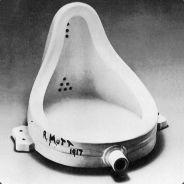No, it makes sense in the context it was made for, which is illustrating the difference between deontology and consequentialism.
Consequentialism covers all morality that's based in the outcomes of actions. Utilitarianism is the kind of consequentialism focused on maximizing happiness. Deontology is rules-based morality.
I think hypotheticals can be useful as long as the example actually is universifiable. In the trolley problem, the real question is "Is it okay to directly cause a bad thing to happen if it will prevent a worse thing (which you did not directly cause) from happening" which is IMO a worthwhile question to ask whose answer is applicable to many different scenarios. I think it's possible to misapply a hypothetical, since the scenarios might not actually be comparable, but if they are, I think we should apply our principles consistently, and having hypotheticals helps us do that.
Oh shit, I took it literally. I thought I was teaching philosophy but I guess I've just been murdering people this whole time.
the person was replaced by another and the incentive structures to tie people to the tracks remain
With the plunger of a toilet, heaps upon heaps, with the plunger of a toilet I have slain a thousand executioners.
Just in time for Trolley Problem: COVID Edition. How will you kill the fewest number of people buying groceries and which demographics do you choose?
If you don't buy groceries, you wil kill exactly one person.
If I don't buy groceries I die, and while that's a benefit my dog refuses to eat unless I'm standing over him to protect him. So that option would kill a dog too, while most of those 70 year-old underemployed workers voted for neoliberals and conservatives.
It's a trolley with a full team of moral accountants on board.
Is this based on a scene from "Emperor of the North Pole"?





